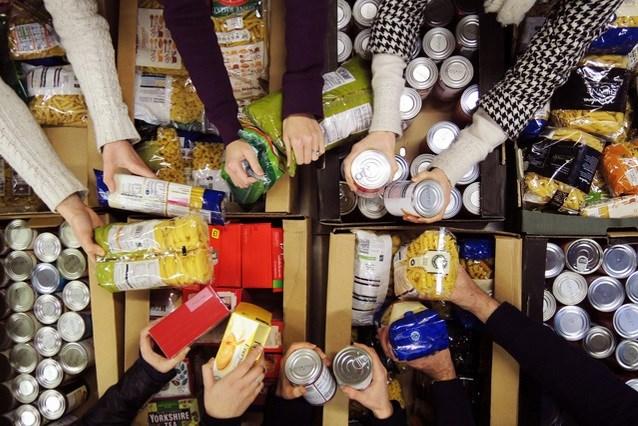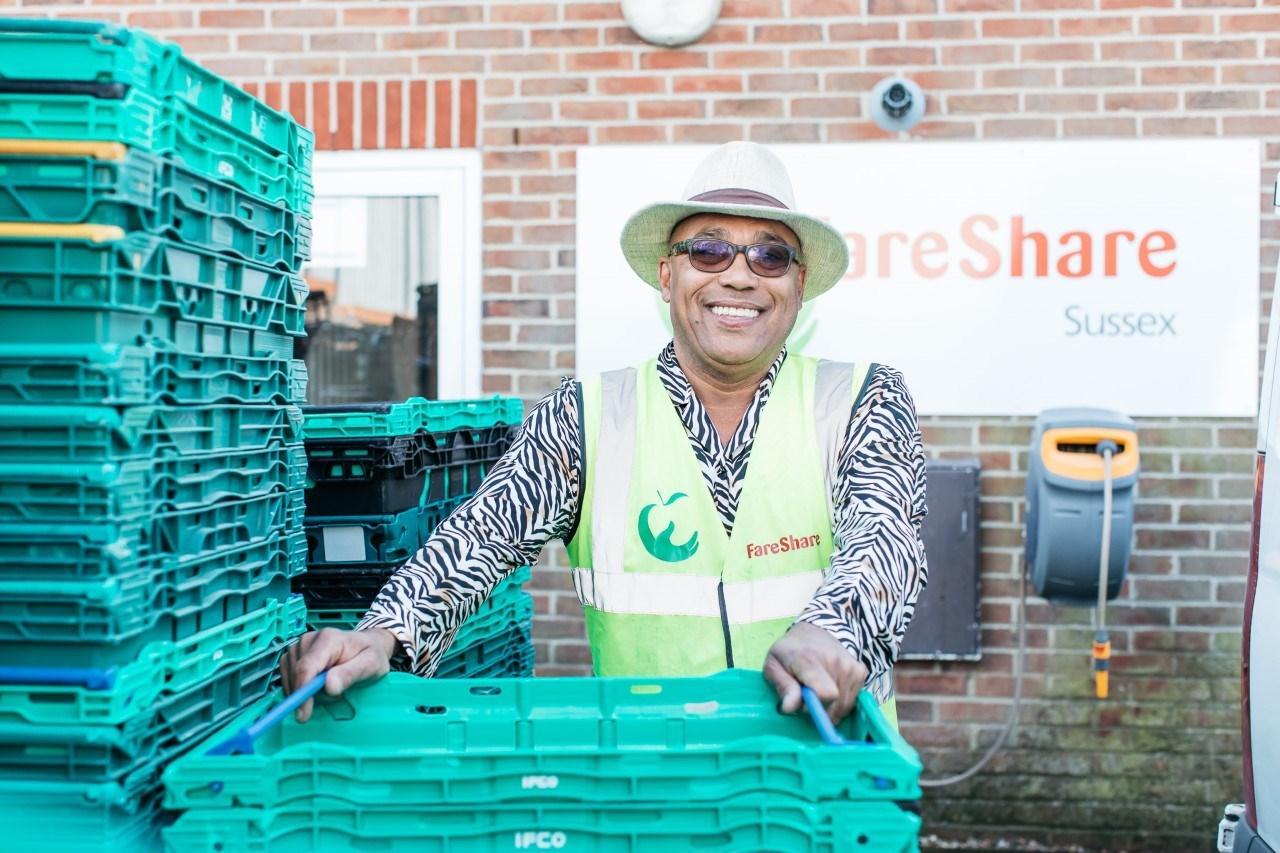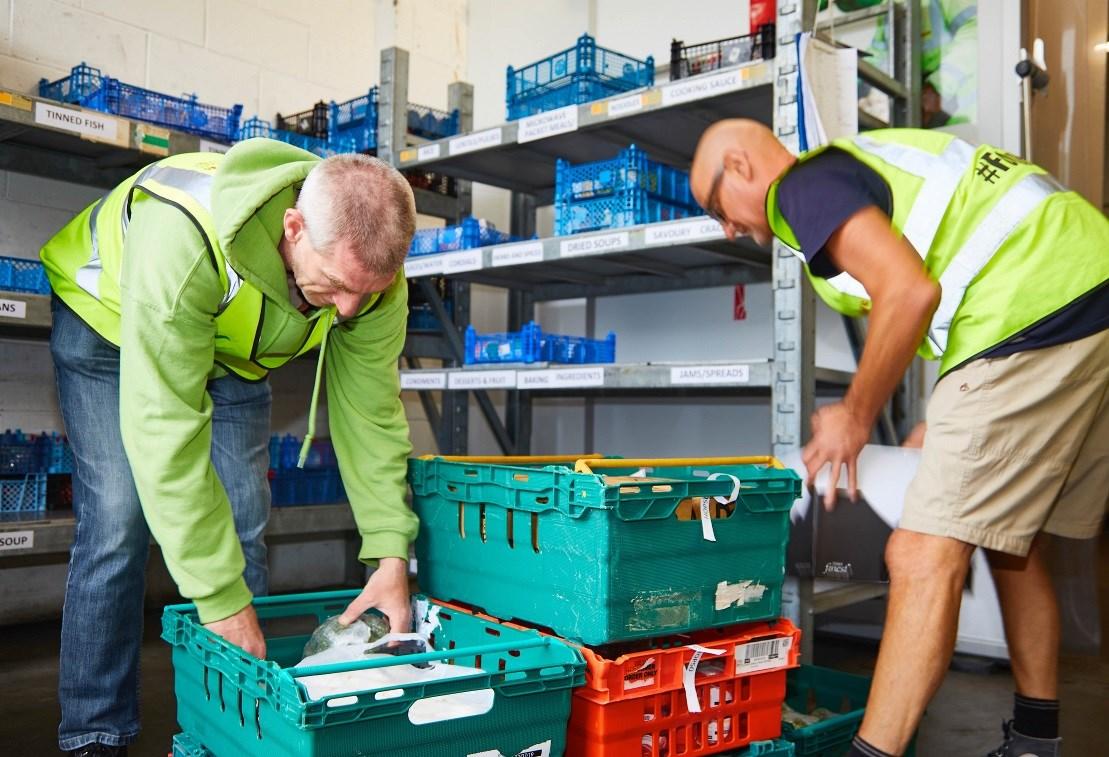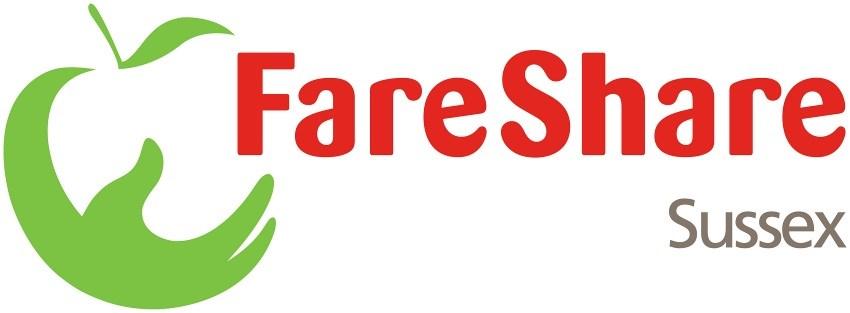
5 minute read
Charity profile Fareshare
26 Charity Profile
FareShare Sussex Tackling food waste and fighting hunger - turning an environmental problem into a social solution. By Georgia Brown
Advertisement
Many people have the privilege of being able to afford everyday essentials, like clothes and running water. Most people reading this article may live in a home with both heating and electricity. However, many people may not be aware that for approximately 5.8 million people in the UK, the realities of living in ‘deep poverty’ make it hard to afford even the most basic of essentials, including food. Around 10% of the UK population of all ages go hungry every day. Though this might seem like a staggering statistic, food poverty can affect anyone, at any time under unpredictable circumstances. This can be due to many reasons, such as unexpected redundancy, reduced welfare support or simply having to support a family on

a low income. This means that for many people, they have little to no choice but to turn to drop-in centres, hostels, food banks and other emergency help in order to feed themselves and their families. For some people, going along to a lunch club helps to alleviate chronic loneliness as well as providing a comforting meal. However, these resources are not widely available and rely on volunteers and workers willing to give up their time to help those in need. This is where FareShare Sussex comes in - a charity that has a long-term vision to eradicate food poverty. The team of incredibly hardworking volunteers have changed the way food waste is disposed of, reclaiming safe-to-eat surplus food from manufacturers, suppliers and retailers that would have otherwise been thrown away. The charity distributes this food to local charities and community projects across East and West Sussex, and parts of Surrey, where it is then turned into thousands of nutritious meals every week for the people who need it most. FareShare has made it possible to accept a wide variety of surplus food, including meat, dairy, fruit, vegetables and ready meals, along with tinned and packet foods such as tuna, rice and coffee. All food accepted by FareShare must comply with food safety legislation, be within its use by and best before dates and be packaged appropriately. FareShare claims that for the community groups they work with, their services are a “much needed resource”; without their support, hundreds of people across the South would go hungry. Beth Parry, FareShare’s fundraising and communications manager, explained that FareShare began in Brighton in 2002 as a small volunteer-run project,
through the door


27
28 Charity Profile
delivering a small amount of supermarket surplus to just a handful of homeless projects in the area. “The stark injustice of good food unnecessarily being wasted alongside the growing issue of homelessness highlighted how one issue could help the other” she said. FareShare is turning an environmental problem into a social solution. Beth continued, “Since 2002 the project has grown year-on-year and now delivers surplus food to 125 charities across Sussex and Surrey. The charities include food banks, homeless hostels and day centres, young people's projects, women's refuges and older people's lunch clubs. By using our service these organisations are able to redirect vital funds into their core services for their clients.” When asked what the best aspect about volunteering for FareShare is, Beth told us that for many volunteers, their main motivation for volunteering is “making a difference to vulnerable people in their community” and enjoying the fact that they can directly see the impact their work has on people’s lives. Furthermore, the work FareShare does for the community does not just benefit those in need, but also works to reduce the environmental impact of high levels of food waste across the county. At such a crucial global stage and with concerns about the ‘climate crisis’ ever increasing, it is refreshing to see a charity pledging to place sustainability at the heart of their mission. By

preventing large amounts of surplus food heading to landfills, FareShare dramatically reduces the environmental impact caused by food waste every day. According to Beth, the charity saved 2,436 tonnes of carbon dioxide emissions last year alone - that is equivalent to powering over 400 homes with electricity for a whole year. However, the pledge to be more sustainable does not end there for FareShare. Beth claims that the charity recognises that it has a little way to go to reduce their own environmental impact even further. She said, “We hope to invest in greener transportation systems, which isn't something we can afford to do without funding. We have an application pending for an electric van and an e-cargo bike, which would reduce our own emissions and enable us to receive and redistribute more food.” According to Beth, the charity would not be running if it wasn’t for the hardworking selfless team of volunteers. Beth said, “We have regular social events

through the door

29
30 Charity Profile
throughout the year, do all we can to acknowledge their hard work and really we could not exist without our team of 150 incredible volunteers.” Similarly, Beth continued that FareShare could not exist without donations and people fundraising. “We need to cover our warehouse rent, our van leasing, fuel and maintenance, our staff salaries and volunteer expenses to be able to keep the project going.” It may be difficult to imagine what Sussex would be like without charities like FareShare working towards reducing food poverty across the county. In response to this, Beth told us, “When asked what would happen


if FareShare had to close, the responses from our charity members were quite shocking - one saying that it could mean the loss of lives, some saying they would have to close their own project down. Many told us that vulnerable people would go without food.” There is still a long way to go before the national struggle to avoid hunger is completely eradicated, but with charities like FareShare dedicating time to tackling the problem, the struggle for many local families is eased. People can support FareShare in a variety of ways; including individual donations, community fundraising events, challenges, volunteering and they also have several food collection points in the area, including Worthing where you can drop off food items. To find out more about how you can support, visit www.faresharesussex.org.uk

through the door











